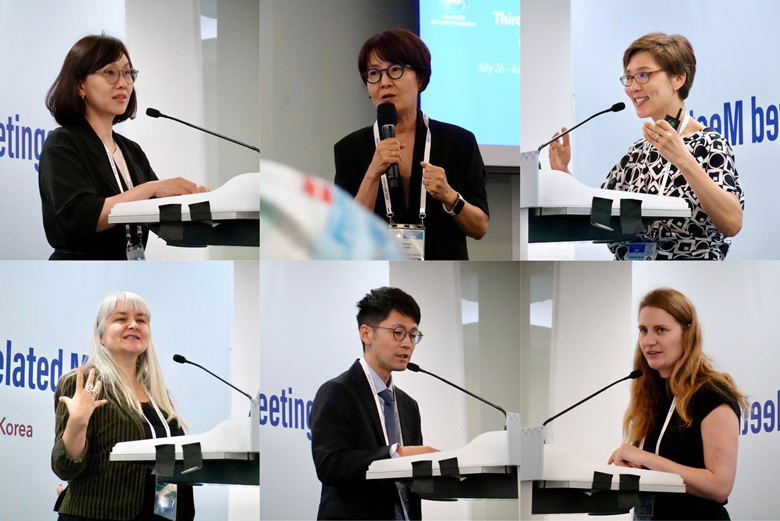
As populations age across the Asia-Pacific, policymakers, researchers and industry experts gathered in Incheon for an APEC policy workshop focused on bridging the digital divide for older adults. Hosted by Korea's Ministry of Science and ICT, the dialogue spotlighted rising inequality in digital access and called for inclusive technology policies that support aging societies.
The workshop is part of Korea's broader push under its APEC 2025 host year to address demographic change and ensure no one is left behind in the digital transition. Sessions featured insights from government officials, think tanks and innovators across the region, sharing policies and tools to improve digital access, skills and services for seniors.
"Digital inclusion is not merely a matter of access," said Dr Hayun Kang, Co-Chair of the APEC Telecommunications and Information Working Group (TELWG) and ICT Policy Researcher at the Korea Information Society Development Institute. "It is about participation, dignity and equal opportunity."
The share of people aged 65 and older in APEC has more than doubled since 1990, and several member economies, such as Japan and Korea, are now classified as super-aged societies. While digital technologies, including artificial intelligence, offer potential to improve health, social connection and public services, many older people face barriers to access and participation.
In her opening remarks, Dr Kang cited Korea's own experience, where older adults continue to score lowest in digital access, skills and utilization according to survey. She emphasized the need for inclusive policy approaches aligned with APEC Internet and Digital Economy Roadmap, noting that "while technology presents challenges, it also offers the tools to address them."
Speakers highlighted the need for tailored, data-driven strategies to promote digital inclusion. Dr Ming Tan of the Tech for Good Institute presented insights from Southeast Asia, calling for trust-building and user-centric design in digital services. Associate Professor Catherine Earl of RMIT University Viet Nam explored how aging intersects with inequality, while Jaeyoung Ha of the Seoul50plus Foundation shared findings on digital usage among older adults in Seoul, noting generational differences in motivation and confidence.
Private sector representatives also explored how user-centered design and community engagement can make technology more accessible. They called for greater collaboration between government, industry and civil society to address barriers facing elderly users.
"Technological advancement has been remarkable, but it has not always been human-centered," said Moonsil Choi, Vice President of Korea's National Information Society Agency. "As we enter the age of AI, it is no longer acceptable for users to adapt to technology. Instead, technology must adapt to users."
Experts reiterated that intergenerational, cross-sector collaboration is vital to making digital inclusion a reality. The workshop is expected to inform upcoming TELWG policy discussions and contribute to Korea's proposed collaborative framework on demographic change.
"Digital transformation must include everyone," concluded Dr Kang. "If we design for older people, we can create better systems for all."






